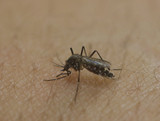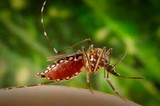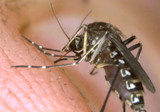Zika Virus Concerns
Scientists are trying to genetically engineer mosquitoes to stop the rapidly-spreading Zika virus
A virus thatuntil this monthhad never been in the US has beenconnected to a case of brain abnormalityin Hawaii.
The mosquito-borne Zika virus is causing severe problems in Brazil, where it appears to be connected to serious birth defects.
To stop Zika’s spread, a company called Oxitec is planning on expanding its genetically-engineered mosquito project to try to rid areas in Brazil of the bug at the heart of the problem: theAedes aegyptimosquito.
A tricky bug
The Zika virus is primarily transmitted by
Aedes aegypti, the type of mosquito responsible for spreading dengue, yellow fever, and a whole host of other tropical infectious diseases. The mosquitoes pick up the virus from infected people,according to the US Centres for Disease Control and Prevention. Originally identified in1947 in Uganda, Zika was relatively unknown until 2007, when there was an outbreak of the virus inMicronesia.
To treat these diseases, scientists have started looking into how to stop the mosquitoes. One step affected areas can try is introducing sterile mosquitoes into the area so as to curb their populations and prevent the disease from spreading. In the past, researchers have done this by zapping the bugs with radiation. Unfortunately, that strategy can alsomake the mosquitoes less competitive and more resistant to mating. So Oxitec tried a different approach: genetically modifying male mosquitoes, which in turn seek out female mosquitoes and mate with them, resulting in no offspring — and eventually, a size ably smaller mosquito population, if all goes well.
“They do what they want to do, which is seek out those females,” Chris Creese, a spokeswoman for Oxitec told Business Insider. “That’s why it’s so effective.” Creese said they have seen more than 90% suppression in trials of their genetically engineered mosquitoes.
Creese said Oxitec is planning on building out its project in Piracicaba, Brazil, an area that’s particularly hard hit by viruses stemming from the
Aedes aegyptimosquito. Right now, Oxitec’s mosquitoes are able to cover about 5,000 people in a district of the city, but the company plans to spread the mosquitoes to cover the up-to-60,000-person urban center soon. Longer term, Oxitec said it’s going to be able to scale out to cover about 300,000 people.
AP
An untreatable virus
Until 2014, the virus had broken out only in Africa, Southeast Asia, and the Pacific Islands. That year, it spread to South America. By last May, Zika had made its way to Brazil. In the past year, Brazil has seen more than 84,000 cases of the virus. Only about one in five of those who are infected showsymptoms, which most commonly include fever, rash, joint pain, and red eyes.
In total for 2015, thousands of babies — about 10 times the normal amount for a year — were born with microcephaly, a condition in which the brain is abnormally small. This birth defect was often found after the mother had Zika virus-like symptoms early in the pregnancy.
So far, there are no vaccines or treatments for Zika. The only way to prevent the infection is to avoid being bitten by mosquitoes. That’s why theUS governmenthave been advising travellers who are pregnant or trying to get pregnant to avoid areas with an ongoing outbreak. Governments in areas where the outbreaks are happening are even advising women topostpone their plans to get pregnant.
“The advice from authorities in Brazil, Jamaica, and the Dominican Republic, to delay getting pregnant is definitely not a long-term solution,” Creese said. “The World Health Organisation recommends controlling the mosquito.”
Recent Posts
-
Mosquito-borne viruses triple in Queensland as La Niña provides ideal breeding conditions
In short:2024 saw the highest number of mosquito-borne virus cases in Queensland in four years, acco …29th Jan 2025 -
Climate change and chemicals on your skin put you at greater risk of getting bitten by a mosquito
Climate change and extreme weather have the potential to increase cases of mosquito-borne diseases a …8th Nov 2024 -
The mosquito-borne virus ‘triple E’ continues its spread, worrying state health officials
Mosquito-borne illnesses are a growing concern in Northeastern states, with health officials monitor …25th Oct 2024





